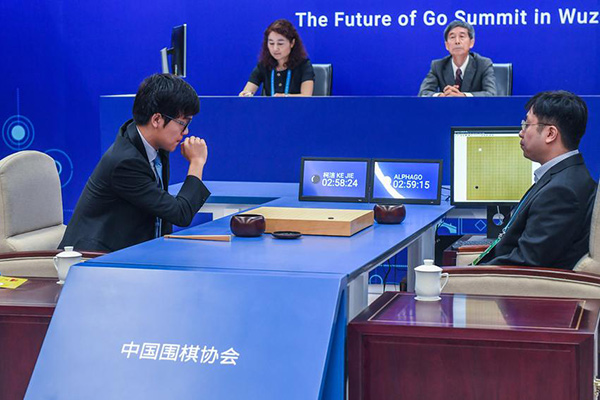
Google's artificial intelligence program AlphaGo is competing against China's best Go player at the Future of Go Summit in Wuzhen, Zhejiang province. The event started on Tuesday.
KeJie, 19, who in 2016 became the youngest champion in Go history to win three world titles in one year, has already lost the first game in a best of three contest against the machine.
Despite the impressive records in the human player' career, fans of the ancient Chinese game still have every reason to be pessimistic about the match. After all, computers have defeated their human opponents on chess board matches over the past two decades.
Below is a review for some of the most fascinating human-computer matches during the past 20 years:
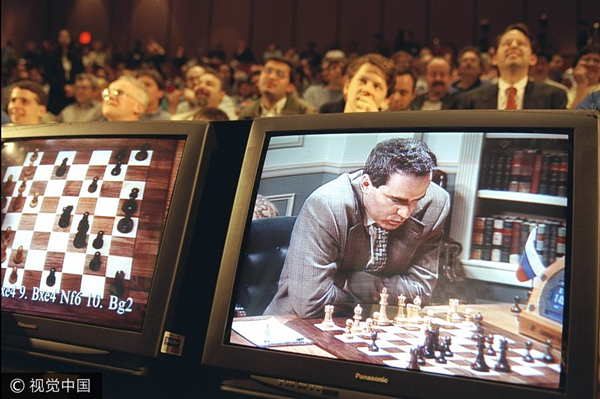
IBM Deep Blue vs Garry Kasparov (May 1997)
The match between IBM Deep Blue and Garry Kasparov, a former world chess champion, has become one of the most famous human versus computer sessions. The computer, developed by IBM specifically for playing chess, managed to beat the then world champion in a series of six games in New York.
It was the first time a computer managed to beat a reigning world chess champion under tournament conditions.
During the match, Kasparov managed to take the win in the first game, but lost the second and drew the next three. The match was even after five games; however, Kasparov became defeated in game six.
Deep Junior vs Garry Kasparov (January 2003)
In January 2003, Kasparov engaged in a six-game classical time control match, with a $1 million prize fund. The event was billed as the FIDE Man vs Machine World Championship,and Kasparov played against Deep Junior.
The engine of Deep Juniorwas able to evaluate three million positions per second, and after one win each and three draws, it was all up to the final game. The end match was televised on ESPN2 and watched by up to 300 million people. Then, after reaching a decent position, Kasparov offered a draw, which was soon accepted by the Deep Junior team.
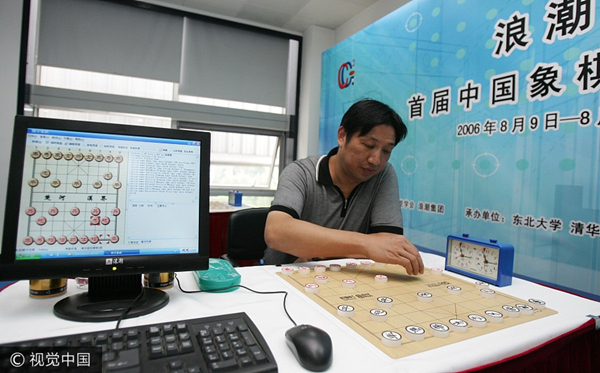
Inspur vs Chinese chess masters (August 2006)
Inspur, a Chinese-chess computer, defeated five grandmasters on its debut at the first Inspur Cup Chinese Chess Human-and-Computer Match. The machine scored three wins, tied five times and lost only two to Chinese-chess players.
The Chinese chess board was also very different from the one being used in Western chess matches. International chess pieces are played on squares, and Chinese chess pieces are played on line intersections which are called points. The playing field,a grid of nine files and ten ranks, sits about 40 percent larger than a traditional Western chessboard.
Inspur, developed by a Shandong-based IT group of the same name, was armed with five different software programs operating simultaneously.
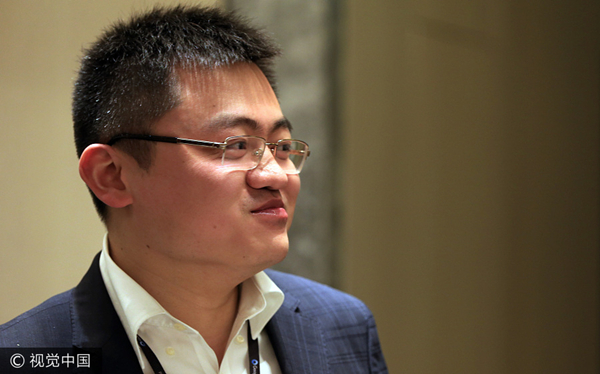
AlphaGo vs Fan Hui (October 2015)
AlphaGo, an AI system built by DeepMind, swept a five-game match against three-time European Go champion and Chinese professional Fan Hui.
For the first time ever, a computer Go program has defeated a professional Go player on even terms – an event that experts previously thought was at least a decade away.
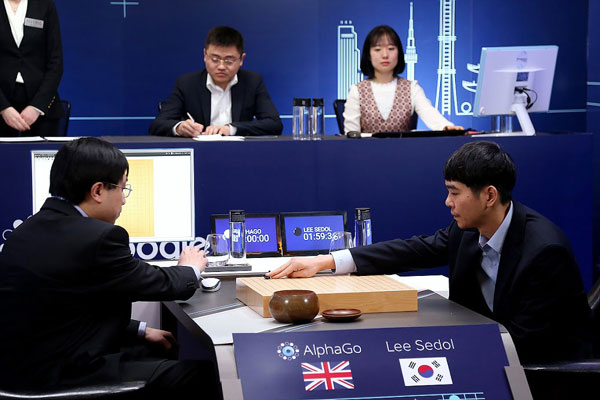
AlphaGo vs Lee Sedol (March 2016)
In 2016, AlphaGo managed to win a series of games of Go 4-1 against South Korea's world-class player Lee Sedol.
The final winner was already determined as Lee lost the first three games of the five-game match. AlphaGo won a $1 million prize, which was then donated to charities.
The human Go champion beat the artificial intelligence (AI), developed by Google's London-based AI subsidiary DeepMind, in the fourth match; however, Lee was defeated once again in the final match.